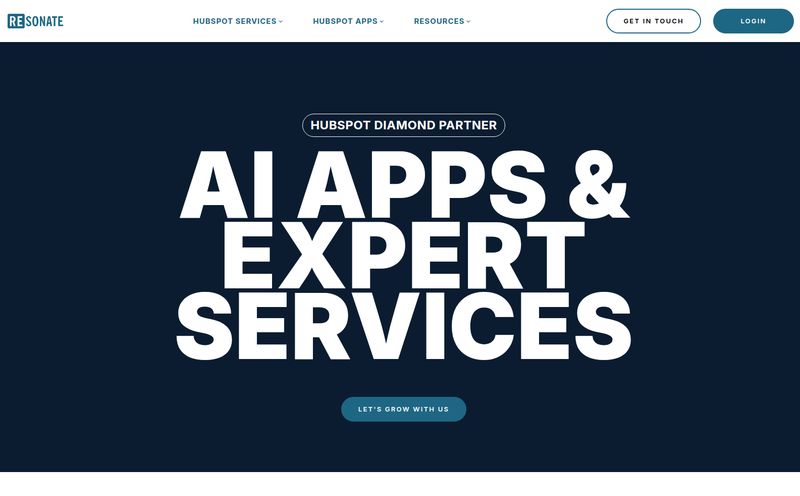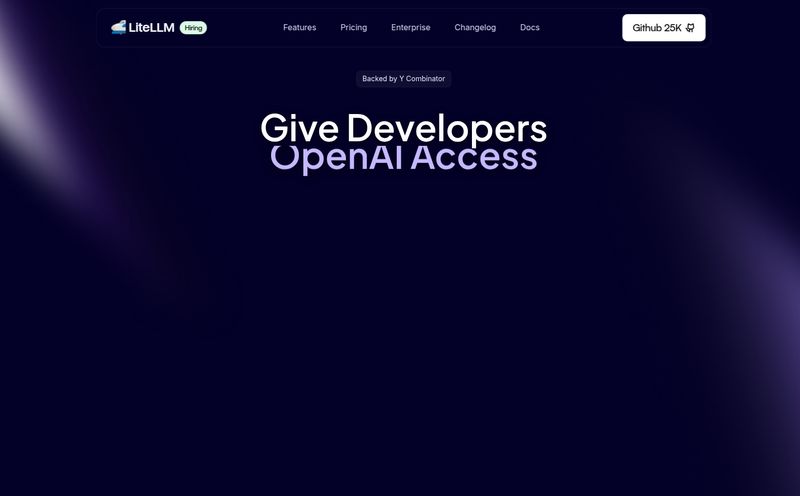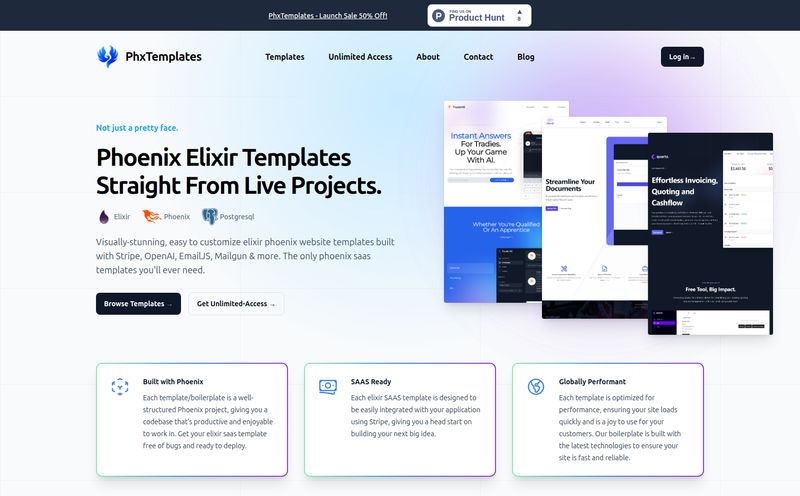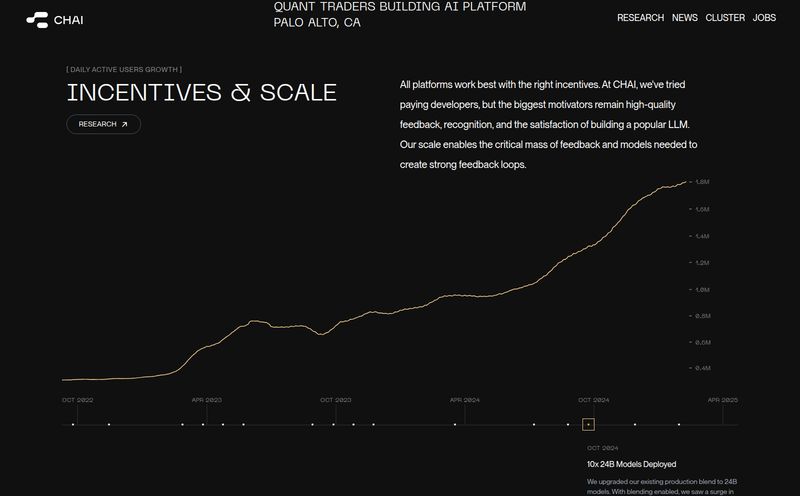Playing with the latest large language models can feel like you're talking to a genius who’s been locked in a library their whole life. They can recite Shakespeare and explain quantum physics, but ask them for the current top story on Hacker News or to check your Notion database, and you’ll get a polite, “I’m sorry, I can’t access real-time information.” They’re brilliant, but they’re stuck in a box.
It’s a frustration I've felt for years. We have these incredibly powerful AI brains, but they lack hands and eyes to interact with the current world. Well, the tide is turning. A new protocol is emerging that acts as a bridge between these isolated AIs and the live, dynamic internet. It’s called the Model Context Protocol (MCP), and a new platform, MCP.io, has popped up to be the town square for this burgeoning ecosystem.
So, What in the World is This Model Context Protocol?
Before we jump into the directory itself, let's quickly get our heads around MCP. Think of it like this: if an AI model like Claude is the brain, MCP is the nervous system that connects it to the outside world. It’s a client-server protocol, which sounds technical, but the idea is simple. An AI application (the “client”) can make a request to an external tool (the “server”) to fetch data or perform an action.
Suddenly, the AI isn’t just a library-dweller anymore. It has a library card, a phone, and a set of keys to various online services. It can ask an “MCP Server” to:
- Fetch the latest weather forecast.
- Summarize the top posts from a specific subreddit.
- Check for new tasks in a project management tool.
- Even interact with your code in Visual Studio Code.
This is the foundation for the next wave of AI agents – assistants that don't just talk, they do things. And that, my friends, is genuinely exciting.
Enter MCP.io: The Community-Built Yellow Pages for AI
Okay, so we have this cool protocol. But how do you find these magical servers? Do you have to scour obscure GitHub repos and Discord channels? That was the reality until recently. Now, we have MCP.io.
At its heart, MCP.io is a community-driven directory for MCP Servers. It’s a simple, no-fuss website that lists all sorts of servers that people in the community have built and shared. When you land on the page, you see lists of the latest additions, featured servers, and even MCP clients (the applications that use the servers). I’ve seen everything from a simple `weather` server to more complex integrations like a `NotionDog MCP` and even a `Visual Studio Code - Copilot` server. It’s a fascinating glimpse into what developers are currently tinkering with.
It feels less like a polished, corporate product and more like a passion project, which in this space, is a huge plus for me. It’s authentic. It's a place for discovery, for seeing what's possible when you give AI a secure way to connect with the world.
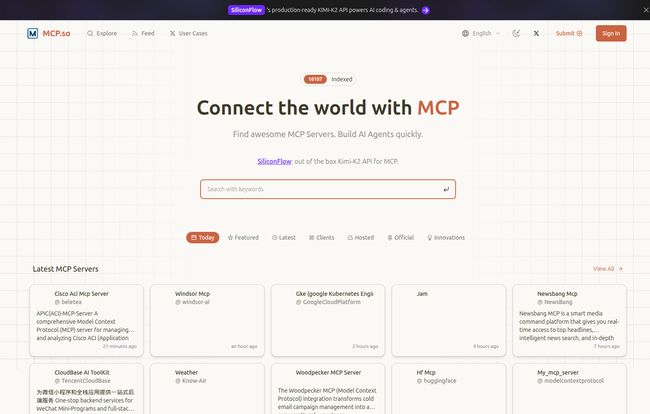
Visit MCP Servers
The Good, The Bad, and The Codey
As with any new, community-led frontier, there are amazing upsides and a few things to be mindful of. This isn’t a curated, one-size-fits-all solution, and that's both its biggest strength and a potential weakness.
Why I'm Genuinely Optimistic
The biggest win here is centralization. Before this, finding these tools was a chaotic mess. MCP.io provides a single, browsable place to see what’s out there. It sparks ideas. Just scrolling through the list, I found myself thinking, “Oh, I could totally connect an AI to my home automation system with that!” It turns the abstract concept of AI agents into a tangible list of possibilities.
It’s also a fantastic learning platform. By seeing what others have built, you get a much better grasp of what MCP can do. It's one thing to read a dry specification; its another thing entirely to see a server that lets an AI read and interact with your Hacker News feed.
A Word of Caution: Navigating the Wild West
Now for a dose of realism. Because MCP.io is a community directory, it’s a bit of a mixed bag. Think of it less like the Apple App Store and more like an open-air market. You’ll find some incredibly polished, useful tools right next to someone’s weekend experiment that might not have been updated in months. There’s no central authority vetting every single submission for quality or security.
This also isn't exactly a “no-code” solution for the average user. To really make use of this, you need a foundational understanding of the Model Context Protocol and how to hook a client up to a server. It's built for developers and serious hobbyists, at least for now. Don’t expect a one-click install that magically gives your AI superpowers. You’ll need to get your hands a little dirty.
How Much for All This Innovation?
This is the part that made me smile. I went looking for the pricing page, and... there isn't one. The platform seems to be completely free to use and browse. This reinforces the idea that MCP.io is a community good, a piece of infrastructure built to help the ecosystem grow. Of course, the individual servers listed on the platform might have their own costs or API fees associated with them, but the directory itself is an open resource. You can't really argue with free.
My Final Take: Is MCP.io Worth Your Time?
So, what’s the verdict? Absolutely, yes.
If you are a developer, an AI researcher, or just a deeply curious person wanting to see the absolute cutting edge of AI agents, you should have MCP.io bookmarked. It’s a raw, exciting, and incredibly valuable window into the future. It’s not perfect, and it’s not for everyone just yet, but it’s one of the most promising grassroots projects I’ve seen in the AI space in a long time.
It represents a shift away from closed, proprietary systems and toward an open, interconnected web of AI capabilities. And I, for one, am here for it. It reminds me of the early days of the web, full of possibility and a bit of chaos. Go take a look. You might just find the missing piece for your next big project.
Frequently Asked Questions
What exactly is MCP.io?
MCP.io is a free, community-driven online directory that collects and lists Model Context Protocol (MCP) Servers. It acts as a central hub for developers and AI enthusiasts to discover, share, and learn about tools that can connect AI models to external data and services.
Is the Model Context Protocol (MCP) difficult to understand?
It has a bit of a learning curve if you're not a developer. MCP is a client-server protocol, so using it effectively requires some technical knowledge about how APIs and network requests work. It’s designed more for people building AI applications rather than casual end-users.
Are the servers listed on MCP.io safe to use?
That's an important question. Since it's a community-contributed directory, the quality, reliability, and security of the servers can vary widely. It’s crucial to inspect any server you plan to use, check its source code if available, and understand what data it's accessing. Treat it like downloading any open-source software from the internet – with informed caution.
Can I submit my own MCP Server to the directory?
Yes! That's the whole point. The platform is built for sharing. If you’ve built a cool MCP Server that connects an AI to a new tool or data source, MCP.io is the place to share it with the community.
Who is this platform for?
The primary audience is AI developers, software engineers, and tech hobbyists who are actively building applications with large language models like Claude. It's for anyone who wants to move beyond the basic chat interface and create AI agents that can perform real-world tasks.
Reference and Sources
- MCP.io - The main directory for MCP Servers.
- K-2.io - The creators behind the Model Context Protocol, as mentioned in the MCP.io footer.
